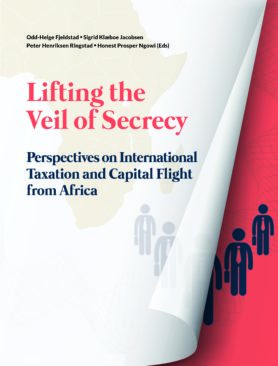This book is produced as a part of the research project Taxation, Institutions and Participation (TIP). TIP investigates the effects of tax havens on domestic revenue systems, institutions and on citizen participation in African countries.
The project aims to generate new, contextualised evidence on the political economy of domestic revenue mobilisation, institutional development and state legitimacy in countries exposed to large scale capital flows. TIP is led by Chr. Michelsen Institute (CMI), and funded by the Norwegian Research Council.
The book is based on research and interaction with colleagues in research institutions, civil society organisations, tax administrations and the private sector in Africa. It is developed in close collaboration with Tax Justice Network – Norway (TJNN).
Tax havens, capital flows and Africa – an introduction:
Increasing domestic revenue is a priority for most African countries. An effective tax system is central to sustainable development. African governments need to mobilise revenues to finance public spending. Tax is key to growth and redistribution. Mobilising the domestic revenue base is crucial for African countries to escape from foreign aid or natural resource dependency.
Widespread tax avoidance and evasion undermine the domestic tax bases in most African countries (IMF 2011). It limits the amount of resources available for the government and undermines economic efficient, income distribution, and the government’s legitimacy.
It is estimated that African countries, relative to the size of their economies, lose more in corporate tax evasion than countries anywhere else in the world (Crivelli et al. 2015). The international tax system facilitates tax avoidance and evasion. There are a number of examples of multinational companies, particularly in extractive sectors, that pay little tax by transferring profits to tax havens. Similarly, there are major challenges in the taxation of renewable natural resources, such as fisheries, forestry, and wildlife. In these cases, only limited revenues reach the treasury in many African countries. Recent information leaks also show that Africans with great wealth hide it in tax havens beyond the reach of their national tax and judicial authorities. In 2015, a list of clients of the HSBC bank with secret accounts in Switzerland became public. The Swiss leaks revealed that residents in sub-Saharan Africa held huge amounts of money in secret accounts.
